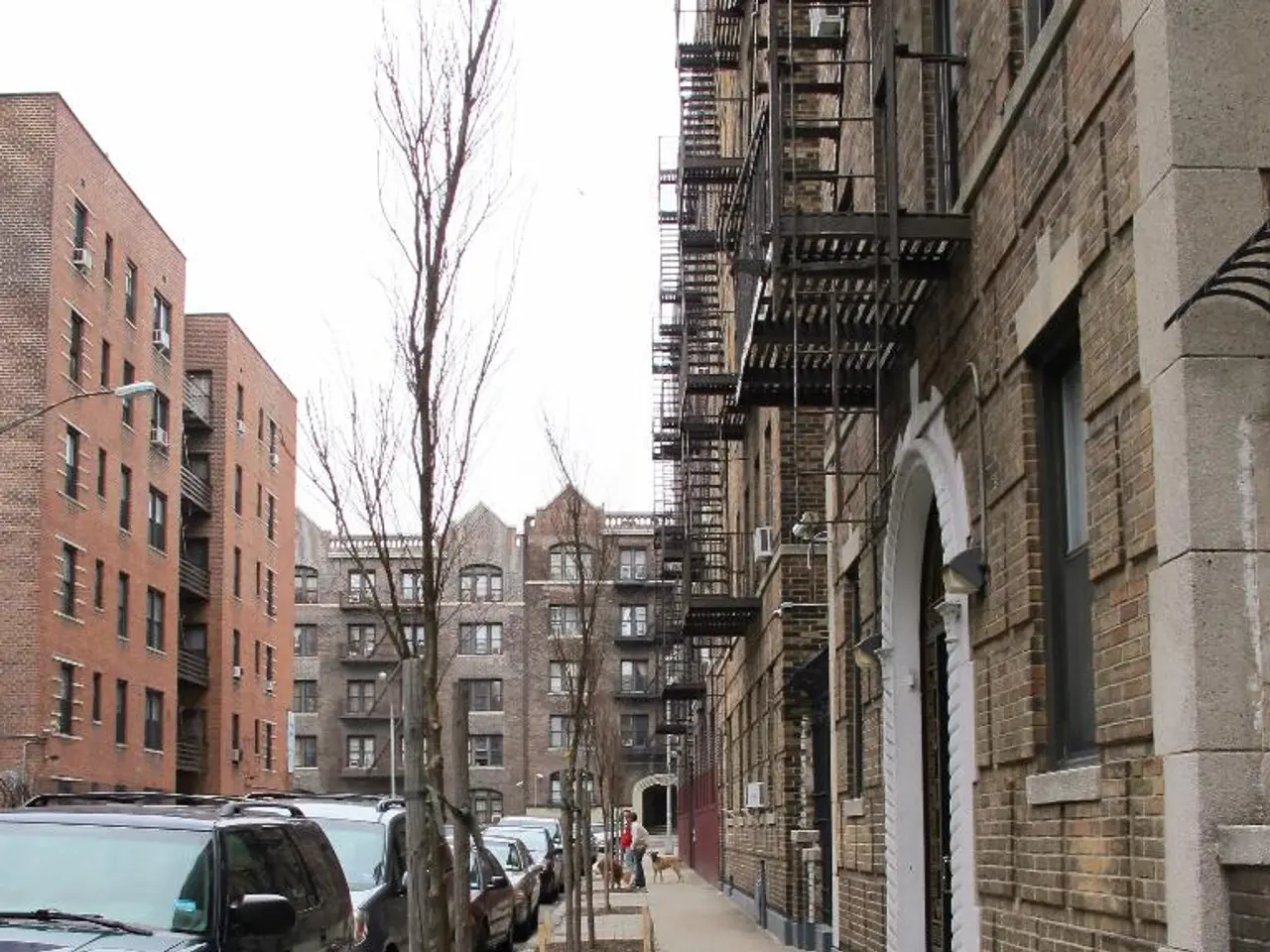Small Biz Breathing Sigh of Relief: EU Carbon Border Tax External Imports Exemptions
Exemptions Granted by EU for Multiple Businesses
In a welcome relief to numerous European businesses, particularly small and medium-sized enterprises (SMEs), the EU has agreed to exemptions from the upcoming carbon border tax on imports such as steel and cement. This announcement was made during a parliamentary meeting in Strasbourg on Wednesday.
The exemptions will apply to imports below 50 tons per year, effectively exempting around 90% of affected companies from the tax and associated compliance obligations. This move is expected to benefit SMEs the most, as they typically import lower volumes compared to larger corporations.
The EU will introduce the carbon border tax next year, gradually increasing in sync with the European carbon price. This tax will apply to imports with high carbon dioxide emissions, including iron, steel, and aluminum, as well as cement, fertilizers, and hydrogen. The tax will mirror the value of CO2 certificates that an importer would have had to pay for domestic production within the EU.
Initially, the tax was intended to be levied on imports valued at more than 150 euros per year. However, following the recent agreement, the threshold has been adjusted to depend on the quantity of imports, set at 50 tons per year per company. This change will significantly reduce regulatory and administrative burdens for affected businesses.
The Carbon Border Adjustment Mechanism (CBAM), the official name for the new tax, aims to shield EU industries from competitive disadvantage due to stricter climate protection requirements within the EU. By imposing a carbon tax on imports, the EU seeks to prevent companies from relocating their operations outside the EU to avoid the cost of emissions compliance.
Currently, European industrial companies receive free CO2 certificates that largely cover their emissions. However, these free certificates will gradually be phased out over the next ten years and replaced by the carbon border tax. The European Parliament and the Council of the 27 EU member states still need to formalize the changes agreed upon in Wednesday's meeting. Both institutions have previously expressed broad support for the reform.
Behind the Scenes:
- Target: Importers of less than 50 tonnes of CBAM-covered goods per year (approx. 90% of companies, mainly SMEs and low-volume traders)
- Primary Affected: Large importers and those responsible for 99% of CO2 emissions from relevant imports
- Key Sectors: Steel, cement, iron, aluminum, fertilizers, electricity, hydrogen
- Objective: Simplify compliance for smaller companies while preserving EU climate goals
This reform is a part of a broader EU legislative package (Omnibus I) to streamline reporting requirements, boost competitiveness, and advance the EU's goal of climate neutrality by 2050.
- The exemptions in the EU's Carbon Border Adjustment Mechanism (CBAM) for companies importing less than 50 tons per year of covered goods, such as steel and cement, will mainly benefit SMEs and low-volume traders involved in environmental-science sectors like iron, aluminum, and hydrogen.
- Amidst the ongoing dialogue surrounding the EU's drive towards climate neutrality by 2050, the Omnibus I legislative package is expected to stimulate industry progress by reducing regulatory burdens for smaller businesses, while redirecting focus towards future employment policies and science-related advancements in sectors like finance and environmental-science.




